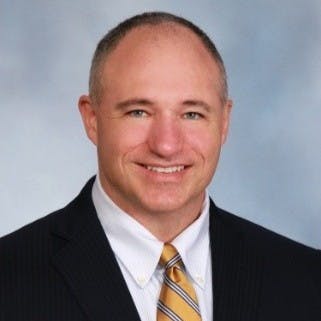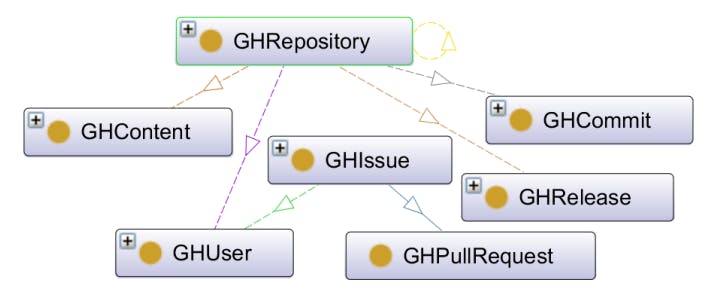“Money Game” is a film that exposes the struggles of ordinary people in a broken fiat system, highlighting the Federal Reserve’s relentless money printing as a key driver of inflation and resource misallocation.
As Professor Gardner, a central figure, states, “Capitalism requires risk to allocate resources. By removing risks, the Fed destroyed the capitalism ecosystem.”
James, a healthcare professional and the film’s protagonist, seeks financial independence after failing to secure a mortgage for his late wife’s dream property. Guided by Professor Gardner, James invests in real assets, ultimately succeeding in timber trading and relocating to Maine with the property he desired.
In the film’s climax, Professor Gardner, on a podcast James helped him launch, declares, “Money printing doesn’t create wealth. Wealth is created by all your hard work.”
In this interview, Olayimika Oyebanji speaks to Chris Galizio, executive producer of “Money Game,” who shares insights on the broken financial system and how investing in commodities like real estate, gold, Bitcoin, silver mining, etc. can help restore economic balance.
Chris, it’s really nice to meet you. Can you tell us about yourself and your professional background?
Hi Ola, I am a former large cap growth manager at Fidelity and I also ran a hedge fund called Focused Capital. My fund at Fidelity grew from $20M to $7B. When the REPO market spiked in 2019, and the FED stepped in to buy all the bonds, I started to question what was happening. I wrote a white paper called the $340T problem which I published pre-COVID.
It refers to the dollar system and how FED action disconnected stocks from fundamentals and broke the ecosystem of capitalism. Then COVID hit and unemployment in the US went to 33%, but FED injected liquidity and stocks actually went UP. This incident changed my view on markets. The FED is protecting the markets. It’s not an “investing” system, it’s a “financing” system.
Once you see it, it’s impossible to unsee it. It’s the biggest line in Money Game, “Correct, and when the FED intervened in bonds markets, they broke the ecosystem of capitalism.” – Professor Gardner, Money Game ‘25
What inspired you to produce “Money Game”, and how did you aim to portray the impact of the Federal Reserve’s money printing on everyday people?
“Because I know how the movie ends, my coffee goes from $3 to $30 and everyone blames the “capitalists” and turns to an authoritarian leader like Hitler to save them. I wanted to change the ending and have them blame the central planners (Jerome Powell, Scott Bessent) and return to capitalism.” —- Executive Producer, Money Game
I knew that I had a concept that no one else could see, the money system is broken. It’s the opening quote in Money Game:
“The task is not so much to see what no one else sees, but to think what no one else has thought about that which everyone sees.”- Arthur Schopenhauer – 1851 Money Game, opening Quote
Then we hired a screen writer, Brian Cheek, to build a story around the concept. We used my brother’s story as the storyline. My brother is a widowed father of two kids. He represents the real economy that is struggling with inflation as the FED prints money from “thin air” to protect the rich (the money system). It’s not capitalism anymore, capitalism requires risk to allocate scarce resources, when the FED intervened the system began to misallocate resources which slows the real economy.
“Our system is broken. It’s clear now that money printing sends asset prices up. What’s less clear is that it also slows the real economy as we misallocate resources. Now we have two different economies, the financial economy, and the real economy, that no longer work together. Money printing does not create wealth, wealth is created by all your hard work.” — Professor Gardner, Money Game ’25.
Notice that the market never reacts to news anymore. Trump said that he wants to increase tariffs on semiconductors by 300% and the Semi stocks like AMD and AVGO that import most of their chips barely moved. Why? Because the entire system is machines that do not read the news. No one is setting prices anymore and that should send a chill down every investor’s spine.
“I felt a great disturbance in the Force, as if millions of voices suddenly cried out in terror and were suddenly silenced. I fear something terrible has happened.” — Obi-Wan Kenobi
How did you approach balancing the film’s entertainment value with its critique of the fiat system and advocacy for alternative investments?
Movies need to be entertainment, no one goes to a movie for a lecture. So we made a love story, where the good guy wins. We put all the technical language in the background, all the characters use everyday language. We removed terms like sovereign debt crisis and moral hazard. Brian Cheek our screenwriter kept saying, ‘show it, do not say it.”, if a character has to cry, do not say he is crying, let him walk onto the porch and cry!!!
James’s journey from struggling with a mortgage to succeeding in timber trading is a central arc. What message were you hoping to convey about pursuing financial independence through real assets?
Every character in “Money Game” has an Arc. James starts out in healthcare being oppressed by his boss (Chris Owen from American Pie). He ends up buying a house in Maine and starting a lumber business as real asset prices explode higher. Professor Garnder starts out teaching class at a community college, but ends up doing a podcast with millions of listeners.
Notice that both characters choose NOT to play the current money game. Also notice the tagline for Money Game on the poster, “Don’t Get Played”. The entire globe is getting “played” by the FED to provide the financing for US business, there is no return from cash flow.
“Who here is willing to give me $152 ($1/.66%) if I give you $1 for the rest of your life?” — Professor Gardner.
“Hell no, we would all be dead by the time we broke even.” – First Day, student community college.
“Correct!!” – Professor Gardner.
The film suggests that investing in real assets can help protect investors from the broken financial ecosystem. What role do you see storytelling playing in educating audiences about these economic alternatives?
We are living in the biggest groupthink in financial markets history that markets are “efficient” and prices are set by “people”. But the reality is that when the FED intervened in markets, the entire system shifted to machines that DO NOT think. No one is setting prices anymore. The entire system is a policy tool of the FED now. Markets no longer “predict” anything, they ONLY “react” to Fed liquidity.
“No one picks their own stocks anymore, the lions (active managers) have been eaten. It’s just a bunch of followers (quant) following followers (passive), it’s like a cat chasing its tail.” — Professor Gardner.
Professor Gardner raises the book,“The Efficient Markets Thesis”, he tosses it aside and laughs:
“Smart people thought the world was flat once too.” — Professor Gardner.
He then raises – Death by money: The Story of the Great German inflation and says: “Some of the most underused books in finance are history books.”
To me, it’s a certainty that the USD (G7) will collapse, because the more the FED prints, the more the system misallocates resources and the slower the growth in the real economy. Notice that the system rewards companies that issue shares every Quarter. Why? Because in a 100% passive world, like today, if a company issue shares, then the passive are forced to buy more shares at the Quarter to match the index.—– Let’s Ask Grok from X, how a 100% passive investing system would allocate capital,
Yes, in a 100% passive stock market, the dynamics you’ve described could lead to companies like Tesla—those frequently issuing new shares to finance growth-outperforming, while also driving market inefficiencies that undermine core principles of capitalism. Let’s break it down:
- Outperformance of Companies Needing Financing
Mechanics of Passive Investing: In a fully passive market, funds buy shares of companies issuing new equity to maintain index weightings, as discussed previously. Companies like Tesla, which have historically issued shares to fund ambitious growth (e.g., factory expansions, R&D), would receive consistent capital inflows from passive funds, boosting their mcap and index weight. Performance Feedback Loop: As these companies’ stock prices rise due to passive buying, they attract more capital from performance-chasing investors (even in a passive system, some investors might allocate based on historical returns). This creates a self-reinforcing cycle: share issuance → passive buying → price appreciation → more investor interest → higher market cap → larger index weight → more passive buying. —- Moral Hazard “Because the system is a game now, James. Success in the current system requires speculation, and I will not speculate with other people’s money.” — Professor Gardner, Money Game ‘25
Professor Gardner says, “Capitalism requires risk to allocate resources. By removing risks, the Fed destroyed the capitalism ecosystem.” How does the film illustrate this critique of the Fed’s policies?
Capitalism requires risk to allocate resources is the theme of Money Game. Investors should be using real interest rates (interest rates – inflation) to value a business. And today real rates are negative. Real inflation is over 4%, which means real rates are negative.
Wealth Effect – Value of a $1 Annuity Interest rates have an enormous effect on asset values. Below is the simplest example in finance, the value of a $1 annuity in perpetuity at different interest rate levels: 10% –> $1/10% = $10 5% –> $1/5% = $20 1% –> $1/1% = $10 -1% –> $1/-1% = Infinite Question: How can the value of a $1 annuity be infinite?
Answer: The Price of Money is Wrong. It’s a
“financing” system, NOT an “investing” system. There is no return from cash flow. ‘When interest rates go negative (real terms), all assets are worth infinite, my coffee is worth infinite, my desk is worth infinite, my whiteboard infinite. Does this make sense?” — Professor Gardner.
But when you remove risk from an ecosystem, the ecosystem changes. It’s not capitalism anymore, it’s a centrally planned economy.
“But here is the problem, capitalism requires risk to allocate scarce resources. Let me give you an example, what would happen if we removed the lions from the Savannah?”
“The gazelle population (passive) would explode higher.” – James.
“But then they would be competing for scarce water resources (inflation) and die off.” – Aimee.
“Correct, and when the FED intervened in bonds markets, they broke the ecosystem of capitalism.” – Professor Gardner.
Why did Professor Gardner describe cash, bonds, etc. as a massive bubble?
Good Question!! The $37T in US debt is unpayable in real terms. It’s 7x tax revenue!! So now the FED is manipulating bond rates to keep the stock market (tax receipts) artificially high. Central banks are not buying gold at all-time highs by accident, they buy when trust breaks silently – before it shatters publicly.
In a sovereign debt crisis “$1.4B Fartcoin is what you get when the “risk free” asset underpinning the entire banking & currency system is a bond issued by an insolvent govt w/debt of 7x revenues, off-bal sheet liabs of 20-30x revenues, peacetime deficits of 7% of GDP, that has not run a surplus in 24 yrs” – Luke Gromen on X.
“The US is 4% of the world’s population, but makes 40% of the world’s budget deficit, 60% of the world’s current account deficit.”– Louis Gave
“That means that to keep the show on the road, the US has to attract, year in and year out, roughly between half and two thirds of the world’s marginal increase in savings. If that money that the savings between roughly, let’s say two thirds of the world’s savings don’t float to the US every year, then you’re either going to have a problem with the debt or a problem in the US dollar, and maybe we’re there.” — Louis Gave Over 30% of the Russell 3000 are zombie corps that lose money like BA, MSTR, CRWD etc.
“History is that which always surprises those who tried to deceive it.” José Ortega y Gasset
“The history of money is the history of trust in symbols. From Rome’s debased denarius to England’s tally sticks, from the gold promises of Genoa to Nixon’s final severing in 1971 – every system of settlement eventually dissolved into memory. Today, programmable money and digital assets function as new tally sticks. They carry liquidity, but not final settlement. And increasingly, digital capital is flowing East, where alternative rails are being built. The enduring question is not whether this system will end, but what foundation of trust will define the next one.” –Petro Golovko, PHD
How do you hope Money Game influences viewers’ perspectives on the fiat system and their own financial decisions in today’s economy?
“Gold is money, everything else is credit”, J.P. Morgan, 1912
“If everybody indexed, the only word you could use is chaos, catastrophe… the markets would fail.” – Jack Bogle, founder of Vanguard 5/6/17 – Bloomberg., Closing Quote Money Game ‘25
We want people to start thinking again. Stop trusting the “experts”. No one cares more about your money than you!!. The experts do not take a loss, if you lose money. That’s moral hazard. James, the film’s reluctant hero, isn’t just asking Bryson,
“How does your company make money?” He’s asking the audience: “How long will you tolerate a system built on lies?” – Petro Golovko.
“A collapse of the dollar system is a RETURN to capitalism; the global economy will BOOM higher. The income equality gap will close, wages will escalate, homeowners will break the chains of debt and the system will stop pouring $Trillions into bad (money losing) investments (GME, AMC, PLTR, NVDA, TSLA, Dogecoin, NFTs).
After the credits roll, you will see a lion appear, that’s you taking responsibility for your own investments again. It’s you thinking.
“Imagine re-introducing a pride of lions (thinkers, capitalists) back into the Savannah after the Gazelle population (index funds, central planning) exploded 10x and were thirsty and weak? The lions would make a killing.”
What challenges did you face in depicting complex economic concepts like inflation and resource misallocation in a way that resonates with a broad audience?
The system is currently broken, so a collapse of the system fixes it. It’s a return to capitalism. Notice that James was under a lot of stress throughout the movie. But at the end of Money Game, he falls in love and the world seems right again. It’s a happy ending!
Everyone should see Bryson, CEO of TAPIT in Money Game, like all the billionaires like Mark Zuckerburg, Elon Musk and Jack Dorsey. They all believe that their companies are trading at infinite because of them. But that’s NOT the reason. Their companies trade at infinite because interest rates are negative.
“A collapse of the dollar system is a RETURN to capitalism; the global economy will BOOM higher. The income equality gap will close, wages will escalate, homeowners will break the chains of debt and the system will stop pouring $Trillions into bad (money losing) investments (GME, AMC, PLTR, NVDA, TSLA, Dogecoin, NFTs).
“Watching the gazelle population (passive, quant) explode by 10x is not a sign that the ecosystem is flourishing, it’s a sign that the ecosystem is broken.
“The entire globe is watching the scoreboard, and no one noticed the players are no longer scoring.”
Any parting words?
There has never been a better time to think. Invest for yourself. No one else is looking out for you. Know the assets that you own and what you are paying for them.
“Once you understand that markets are broken, you are holding a crystal ball.” –Executive Producer, Money Game.
Take back your investments from all the experts that think markets are “efficient”.











